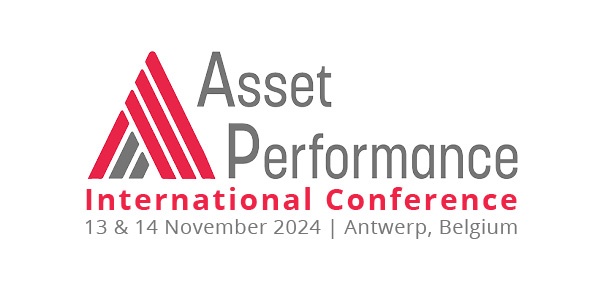How Data Spaces Are Set To Digitally Transform European Manufacturing
Industry 4.0 is all about digital transformation and using data connections to improve industrial processes, productivity, efficiency, safety, and sustainability.

One of the main drivers behind industrial digital transformation in Europe is the DG Connect (Directorate‑General for Communications Networks, Content and Technology) which is soon to release the Digital Europe Programme document which will outline plans and initiatives to encourage the digitisation of economic areas such as manufacturing.
For this article, we interviewed Matthias Kuom who is the seconded national expert for at DG Connect. With a background in digital technology and several years worth of experience in implementing digitisation funding schemes for the German federal ministry of economics, Matthias is well placed to discuss the new Digital Europe Programme and what it means for European industry.
What is the Digital Europe Programme?
The main aim is to empower businesses and to create a prosperous digital future in a people-centered, sustainable way. The programme’s guidance and initiatives address businesses, public administrations, and the general public.
Matthias is involved with the digital transformation of industrial ecosystems with a focus on helping businesses to develop and implement their digitisation pathways. In 2016, DG Connect released the Digitising European Industry document, which introduced and developed measures to encourage platform development. Now the focus is shifting more into the data side of things, with an ambitious goal to develop digital innovation hubs which will support SMEs that are not so mature in the digital transformation. The program will support businesses to trial and test new technology and look to expand the use of industrial data spaces.
Digital data spaces explained
The first thing to realise is that an industrial data space is not simply a cloud data storage solution – it is much more than that. An industrial data space is a combination of hardware, software, and soft-infrastructure (rules on how data can be used, i.e. defined standards, protocols and connections).
Data spaces are a complex ecosystem and describe more than just the hardware system used. The main function of a data space is to provide a cross-company, multilateral data exchange. In other words, a data space is a place to share and reuse data.
The difference between a cloud platform and a data space
There is a big difference between data spaces and basic cloud platforms. Usually a cloud platform is simply a storage space that businesses use to share data within their own company, or with a small, select group of clients or solution providers. On the other hand, a data space is a more open environment, where people are incentivised to share and re-use data across multiple organisations that are not direct customers or clients.
The Digital Europe Program is keen to encourage European companies to provide the hardware to support data spaces and set up federated cloud infrastructure that uses European cloud providers, hardware providers, and software providers. Of course, it is also open to non-European companies to provide support, but DG Connect wants to make sure that it is fully open and accessible for all European providers and that users know exactly which legal regimes apply.
Focusing on the manufacturing industry
DG Connect published a data strategy last year which identified priority areas where they would like to start implementing data spaces – manufacturing, finance, agricultural, etc. They also envisage exchanges across many industrial areas, with an overarching aim to eventually combine a variety of different data spaces into one central industrial data space.
Manufacturing is one of the most important and strongest economic sectors for Europe. Data spaces can help to transform businesses in a more service-oriented manner and increase the speed of the innovation cycle. European data spaces give new entrants and startups a chance to work with a larger volume of data, which is important right now and will be even more important in the future.
European manufacturers are in a good position globally, but in order to remain competitive they need to keep focusing on digital transformation, especially in the area of data connectivity. Asset Performance 4.0 is focused on inspiring businesses and organisations to get on board with this digital transformation.
Details on the data space pilot scheme for industrial maintenance
DG Connect recently held a workshop with manufacturing industry stakeholders and discussed different topics to find out where they are already relatively advanced in terms of digitisation and where they need more support.
In terms of predictive maintenance, the tools are already relatively advanced, but still a need to improve the learnings across company borders. There needs to be a recognition that maintenance involves a variety of different parties, bi-directional data exchanges in this area will help to progress things more rapidly.
Data spaces provide a number of benefits for different stakeholders when it comes to maintenance of industrial assets:
- Asset owners – opens up more opportunities for different service offerings using the data. At the moment it’s often the machine tool provider who provides the solution and what can be done with the data, but data spaces open this up.
- New market entrants and startups – data spaces open up access to the data flow. For instance, a new business can install a simple additional sensor and access and combine machine data that allows them to offer new services.
- Service providers – able to offer more, improved services, with more efficiency.
Data spaces allow value to be gained from the data by combining different data sources and sharing it. Multiple service providers can use and benefit from the data. This is very helpful in a data-driven sector such as predictive maintenance.
Overcoming hurdles – data ownership and sharing
One of the main hurdles to setting up data spaces is that some companies and service providers are reluctant to share data.
Funding can help to incentivise the sharing of data within the data space and to develop guidance and rulebooks. The money can be used to increase the number of participants.
Rulebooks and guidance already exist on how to build and manage data spaces, but these need continuous development as they get put into practice. A separate EU directorate works on the data governance side of things to innovate new ways to efficiently manage data spaces, such as the use of an intermediary which helps to foster trust. The directorate also works on building legal frameworks to govern data spaces effectively.
There is always room for improvement in the governance of data spaces, especially when it comes to key areas such as quality management.
Data space launch timeline
At the moment, the program is still in the negotiation phase. DG Connect is finalizing the details of the digital Europe program, which will be published soon, hopefully by Autumn 2021.
As Matthias says, “It’s important to have a good idea of how to build the sectorial data spaces, but also the horizontal measures using a support action approach. We initiate stakeholder dialogues to find commonalities and things to build upon. By 2022 we hope to be taking proposals from service providers to build the data spaces, and have them up and running by the end of 2023.”
Interested in data space for industry?
Asset Performance 4.0 welcomes Matthias Kuom as keynote speaker on October 27, the first day of the conference, with his presentation “How Manufacturing Data Spaces will improve Prescriptive Maintenance”.
Any interested service providers can contact DG Connect and ask any questions. DG Connect will soon be requesting proposals for two use cases from relevant service providers. Many stakeholders already have embrionic data spaces in place, which can be the starting point for the main overall project, so DG Connect is keen to talk to companies with this kind of setup.
DG Connect wants to see as many industrial players involved as possible – machine tool providers, asset users, service providers, and research organisations.
Please follow DG Connect’s various channels to see how we can all support each other in digitally transforming the world of industry and becoming a part of the changes: https://digital-strategy.ec.europa.eu/en/activities/digital-programme
